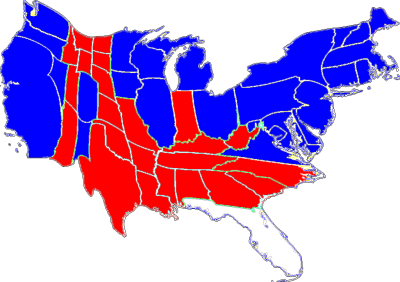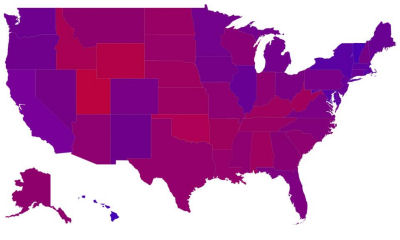 Well, it’s Friday at lunch, and you know what that means–it is time to clear out the bookmarked links that didn’t quite form into themes (although, as I type in the times, there does seem to be a general transportation/travel theme). So here we go… (and as a reminder, I’m still looking for thoughts regarding use of iTunes 11 with the iPod Classic):
Well, it’s Friday at lunch, and you know what that means–it is time to clear out the bookmarked links that didn’t quite form into themes (although, as I type in the times, there does seem to be a general transportation/travel theme). So here we go… (and as a reminder, I’m still looking for thoughts regarding use of iTunes 11 with the iPod Classic):
- Three-Cylinder Power. This article from the LA auto show caught my eye. Evidently, Ford has a new 3-cyl. Fiesta, and the engine is designed in such a way as to give more power than a conventional 4-cyl. engine. The trick is to turbocharge the engine, combined with patented engine mounts and with weights installed outside the engine, on the pulley and flywheel to address the inherent unbalance of 3 cyl. If this approach works, I’m guessing we’ll see some revolutionary strides in small car efficiency.
- Subway Problems. We all know how Super-Storm Sandy knocked out the NYC Subway system. What you probably don’t know is the work involved in getting it running again. Here’s an interesting article on why it is going to take a long time to restore the R train tunnel between Brooklyn and Manhattan. One of the longest tunnels, it saw all of its electrical equipment coated in salt water. Not good.
- Busing It. Megabus is returning to California, with low-price tickets between Vegas, Sacramento, San Francisco, and Oakland to Union Station. This is of particular interest to me, as it provides an easy way for my daughter to get from Berkeley to Los Angeles (and then Red Line or Metro-Link to the valley). However, as the service is run by Coach USA, I’m unsure it will last (given Coach USA’s problems — they used to run the Flyaway). Still, I hope it succeeds.
- The Cost of Hotels. LA Observed has an interesting discussion on why hotels cost so much, working off an article from Slate. There are a number of basic reasons: travellers tend not to bargain (especially when on expense accounts), and hotels don’t need to discount all rooms (they can discount the unsold few at the last minute). [By the way, this may be similar to the demand pricing Megabus uses to discount tickets — a few tickets purchased really early may be cheap, and tickets purchased at the very last minute may be cheap.] The Slate article itself talks about the excessive taxes, location costs, and high level of services, but concludes “Hotel customers tolerate these marked-up amenities because they generally aren’t very interested in driving a hard bargain. The business traveler is likely to feel that he “needs” appropriately located accommodations and isn’t going to be interested in exhaustive research about the costs and benefits of staying someplace cheaper and more remote. What’s more, he’s generally not paying out of pocket. A responsible employee will of course try to be reasonably frugal, but even so frugality is benchmarked to local costs. “
- Costs of Secession. We’ve all be reading about the secession petitions, and even humorists have addressed the subject. But here’s a more interesting question: Suppose you have a DOD Security Clearance and sign a secession petition. Does that affect your security clearance? This article explores the question. When you think about it, it is a real issue: you have an individual who has just publically advocated working against the US government. Is that adverse information, and does it bring into question their loyalty to the US. As Ben Franklin once said, “Oh sure, harmless. I know how these things happen. You go to a couple of harmless parties, sign a harmless petition, and forget all about it. Ten years later, you get hauled up before a committee. No, thank you, I’m not going to spend the rest of my life writing in Europe.”
- Gluten-Free Wheat? An intriguing article in the LA Times about some scientists who believe it is possible to engineer a wheat variety that goes not contain gluten. It might be possible, but I’m not sure I’d trust it… for a number of reasons. First, I would be far too afraid the processing would contaminate it with other wheat; secondly, I’m still unsure about engineered food.
- Finishing With the Hat. And lastly, an interesting story about a woman who lost her hat while traveling. It was a hat her mother wore during her last days of chemo. How is she solving the problem… she’s putting the request on social networks.
P.S.: Received my first challenge coin today. Cool.
Music: Martin Short: Fame Becomes Me (Martin Short): “Glass Half Full”


 I’ve been trying to avoid political posts since
I’ve been trying to avoid political posts since 

 Now that the election is over, a few post-mortem thoughts:
Now that the election is over, a few post-mortem thoughts: This morning, I received an interesting comment on a recent post:
This morning, I received an interesting comment on a recent post: If you are an American Citizen… a final reminder… please remember that one of the benefits of citizenship is the ability to select our leaders and decide the direction for our government. Today, you have that ability… an ability to do something that many people in the world do not have the ability to do… an ability that many have give their lives to defend so that you can do it. Don’t waste it .. get out there and vote.
If you are an American Citizen… a final reminder… please remember that one of the benefits of citizenship is the ability to select our leaders and decide the direction for our government. Today, you have that ability… an ability to do something that many people in the world do not have the ability to do… an ability that many have give their lives to defend so that you can do it. Don’t waste it .. get out there and vote. To all my friends who are voting for a President candidate simply because he is not (insert name):
To all my friends who are voting for a President candidate simply because he is not (insert name):